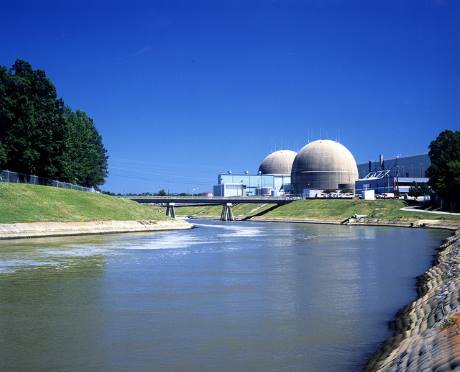Dominion Virginia Power has become the first US utility to notify the US Nuclear Regulatory Commission (NRC) of its intent to seek a second 20-year licence renewal for a nuclear power plant. If granted, the extension would see the two units at the Surry plant complete an 80-year operating lifetime.
 |
| Surry's two units could operate for 80 years (Image: Dominion Energy) |
Dominion Virginia Power has notified the NRC of its intention so that the regulator can plan for the staffing needed to support the licence renewal application. The company is still reviewing technical aspects associated with the renewal, which will ultimately require the approval of its board of directors, but says it sees no "significant barriers" to prevent it submitting the application in 2019.
Dominion Generation CEO David Christian announced the development at a White House symposium on the future of nuclear energy in the USA, held on 6 December. "Renewing Surry Power Station's licences for a second 20-year period is good news for our customers, the regional economy and the environment," he said, describing the USA's nuclear generating capacity as the "backbone" of the nation's carbon-free power generation. "In the case of Surry, it produces 20% of the electricity used in Virginia. Its continued operation could assist in meeting and maintaining the state's goals for lowering carbon emissions," he said.
Surry unit 1 entered commercial service in 1972, followed by unit 2 in 1973. Like all US nuclear units, the two pressurized water reactors were originally licensed to operate for 40 years. The units' operating licences were renewed for 20 years in 2003 following a review process that took nearly two years to complete. The units are currently licensed to operate until 2032 and 2033, but could operate until 2052 and 2053 with renewed licences.
Researched and written
by World Nuclear News






_55401.png)
_23009.jpg)






